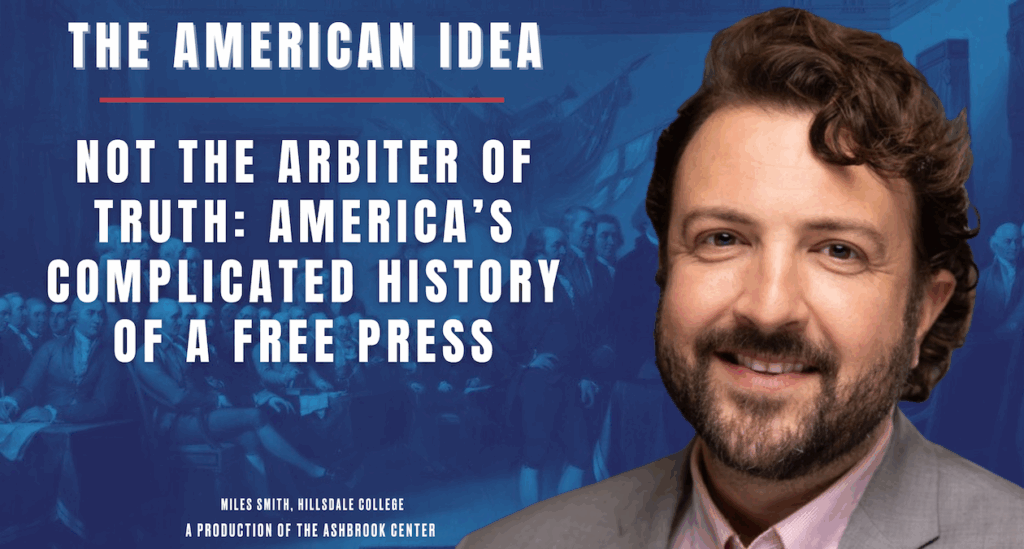Not the Arbiter of Truth: The Role of a Free Press in Our Republic
July 23, 2025

Listen and subscribe to the podcast
Join The American Idea’s Listener Email list – get news about upcoming episodes and a chance to offer questions for them, too!
The current debates over press freedom and misinformation reveal a fundamental misunderstanding of what America’s founding fathers intended when they established First Amendment protections for a free press. The purpose was never to create a system where journalists serve as neutral arbiters of truth, delivering unbiased information to the masses. Instead, the American press system was designed to function as a battleground of competing ideas and narratives, where different voices would present their arguments to an educated citizenry capable of self-government. The people themselves, not the government or the press, were meant to serve as the ultimate judges of what constitutes truth.
This constitutional vision stands in stark contrast to the modern expectation of media objectivity that emerged after World War II. Historically, American newspapers were openly partisan media institutions, created by and funded by political parties. Federalist newspapers presented one perspective while those funded by Jeffersonians offered another, and readers understood exactly what they were getting. The idea that MSNBC should pretend to be neutral, or that Fox News should mask its viewpoint, would have seemed absurd to the founding generation. They believed that truth emerged through vigorous political debate between competing voices, not through the pronouncements of supposedly impartial institutions.
The notion that government should regulate misinformation represents a dangerous departure from republican principles and constitutional democracy. When the federal government becomes the arbiter of what constitutes truth, it effectively transforms from a player in the democratic process into a referee with the power to silence opposing voices. This is precisely what the founders of America sought to avoid. Even during the early American republic, when presidents faced brutal personal attacks in the press, including false claims that Thomas Jefferson would burn Bibles and kill babies, leaders like George Washington and Jefferson chose tolerance over government censorship. Washington noted that in a free government, “allowances must be made for occasional effervescences,” accepting that American democracy would sometimes be messy.
The history of American press freedom has never been as pristine as many imagine. The Alien and Sedition Acts under John Adams actually criminalized criticism of the government, leading to the imprisonment of a congressman for his written opposition. During wartime periods throughout U.S. history, press freedoms have been curtailed, often aggressively. Individual states historically regulated speech more heavily than the federal government, prosecuting individuals for blasphemy and other expressions deemed offensive to community standards.
When it comes to the American press, the challenge for any free society lies in ensuring that governments restrain themselves appropriately. While certain wartime limitations may be necessary – no one argues for the right to publish military battle plans – the true test of a republic’s health is whether it can relax these controls when the emergency passes and resist the temptation to manufacture crises that justify ongoing censorship. The founding fathers understood that a free press would often be a messy press, full of partisan attacks and competing narratives. They chose this chaos over the alternative: a tidy system where the government decides what its citizens are allowed to hear.

